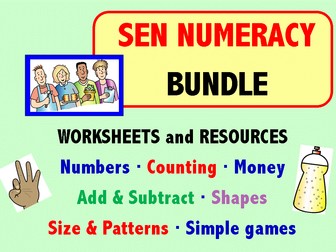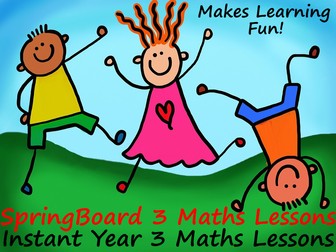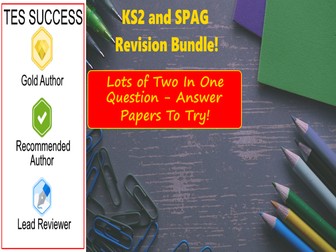Bundle

SEN Numeracy bundle
This bundle contains all 8 SEN Skillsheets numeracy resources and provides a huge selection of worksheets to teach numeracy plus other resources. There is lots of opportunity for repetition and reinforcement of ideas as learners can work through the sheets making small steps of progress. The worksheets and other resources can be printed in colour to give them extra visual appeal.







